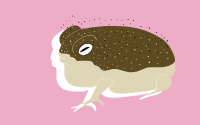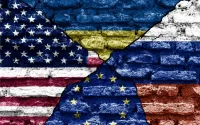19 February 2008
Symbols matter, especially when they proclaim a sense of identity. This is why lifting a ban on head scarves for women in Turkey has been so contentious for secularists and observant Muslims alike. It was nevertheless a boon for both religious freedom and civil rights when the Turkish Parliament voted this month to end the head-scarf prohibition in schools, amending a strict secularist Constitution that was adopted after a coup in 1980.
Both sides in this quarrel would be wise to stop obsessing over head scarves - and start cooperating on the reforms Turkey needs.
Each camp distorts the other's intentions. Secularists envision more women acceding to pressure to cover their hair. They fear that the governing Justice and Development Party, a moderate, pro-business Islamist party, is pursuing a hidden agenda - one that begins with lifting the head-scarf ban and ends in transforming a secular republic into an Islamist state.
This paranoia has served the interests of the military brass, their allies in the judiciary, urban elites, and some rabid nationalist groups. The leaders of the army and the security services, commonly referred to as the "deep state," use the specter of a creeping Islamist takeover to justify their control of key levers of power. And they hint that if the Islamists go too far, there may be another military coup.
Meanwhile, the Justice and Development Party seeks to satisfy those of its recently urbanized supporters who maintain habits of piety acquired in rural villages. Party leaders have strongly favored Turkey's campaign to join the European Union, even more so than the secularist generals.
Ending the ban on head scarves serves the party's interests by simultaneously making Turkey more like most European countries - other than France, which has its own ban on head scarves in public schools - and keeping a campaign promise to its domestic base.
Secularists and moderate Islamists need to work together to change the infamous Article 301 of the penal code, which allows the state to prosecute citizens for insulting "Turkishness." By criminalizing free speech, this grotesque anxiety about Turkish identity only identifies Turkey as an unfree country.






